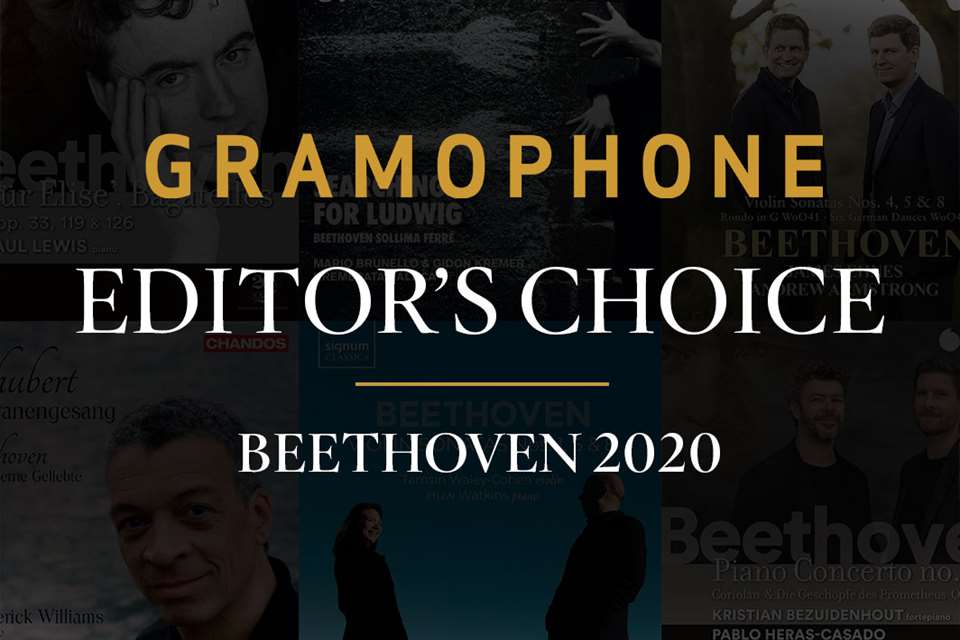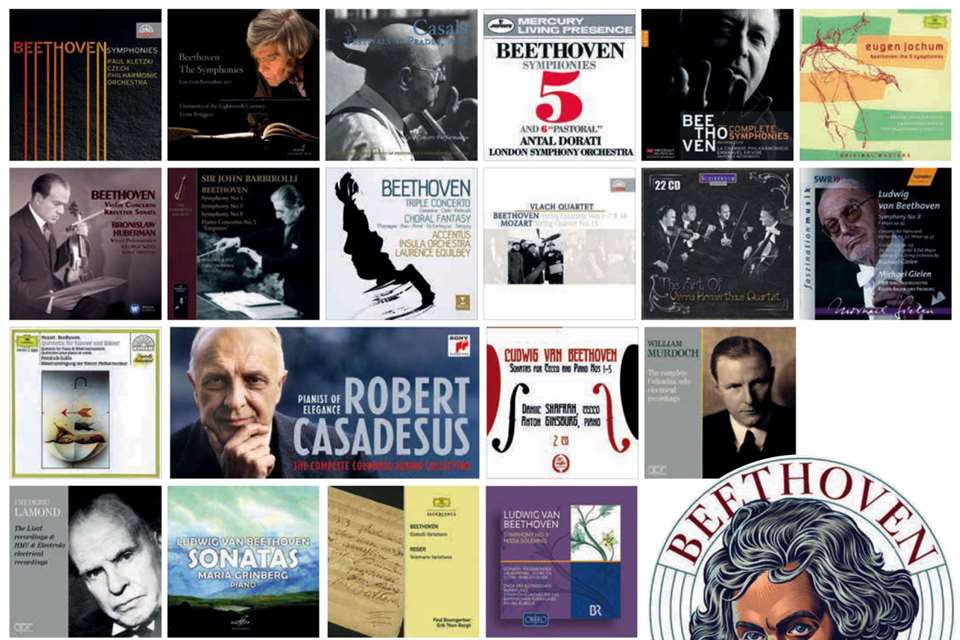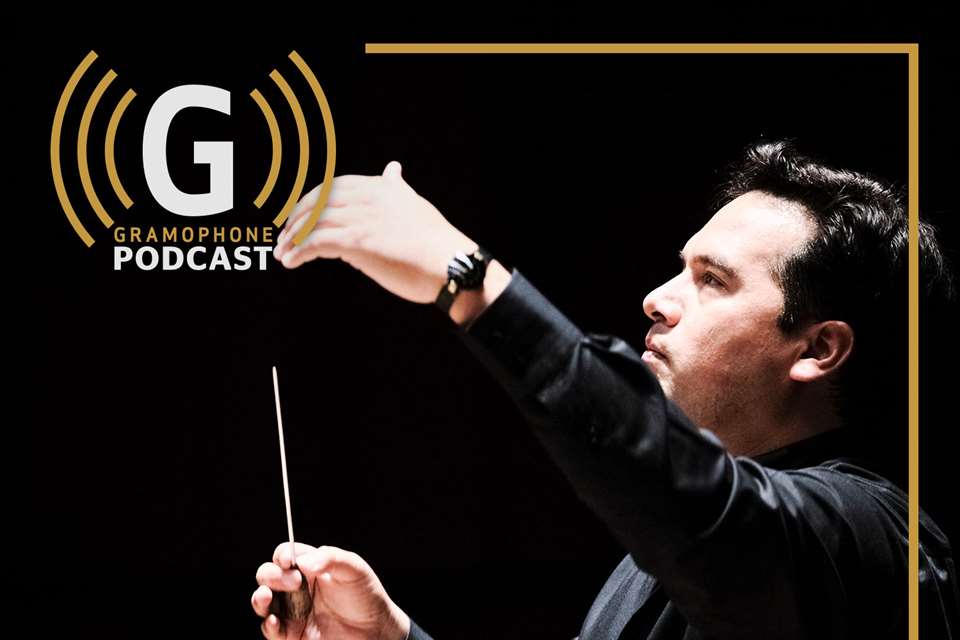Video - Beethoven's Fifth: interpreting genius
Tuesday, February 9, 2021
James Jolly and Rob Cowan discuss Beethoven's Fifth Symphony, the art of interpretation and how the great recordings of the past century compare, including extracts from Carlos Kleiber, Herbert von Karajan, John Eliot Gardiner, Mariss Jansons and more
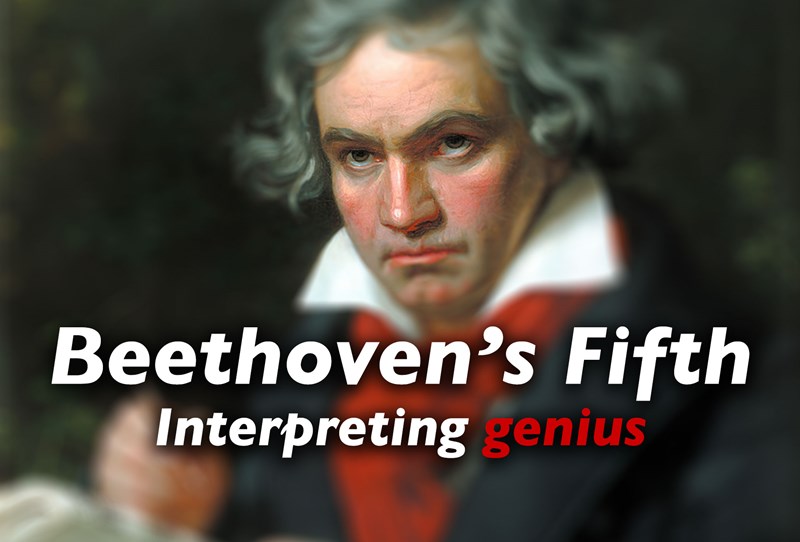
Welcome to Gramophone ...
We have been writing about classical music for our dedicated and knowledgeable readers since 1923 and we would love you to join them.
Subscribing to Gramophone is easy, you can choose how you want to enjoy each new issue (our beautifully produced printed magazine or the digital edition, or both) and also whether you would like access to our complete digital archive (stretching back to our very first issue in April 1923) and unparalleled Reviews Database, covering 50,000 albums and written by leading experts in their field.
To find the perfect subscription for you, simply visit: gramophone.co.uk/subscribe
In the first episode of a brand new series for Gramophone, Editor-in-Chief James Jolly and critic and broadcaster Rob Cowan discuss Beethoven's Fifth Symphony and compare the various approaches that conductors have taken to this most famous of masterpieces.
They talk about how a professional critic should approach a new recording, how performance practices have changed over the decades, and how – no matter how many times you've heard this symphony – Beethoven's genius always shines through.
Below you will find an Apple Music playlist containing all of the recordings discussed, as well as links, where possible, to the original Gramophone reviews in the Reviews Database. For more information about subscribing to Gramophone's Reviews Database please visit: Gramophone Subscriptions.
Beethoven's Fifth: interpreting genius
You can watch on YouTube...
... Or you can watch the Vodcast below. To hear other Gramophone podcasts, or to subscribe for free to new editions, search for 'Gramophone Magazine' in your Podcast application of choice, or visit Gramophone's page on Apple Music podcasts.
Playlist
Gramophone Reviews
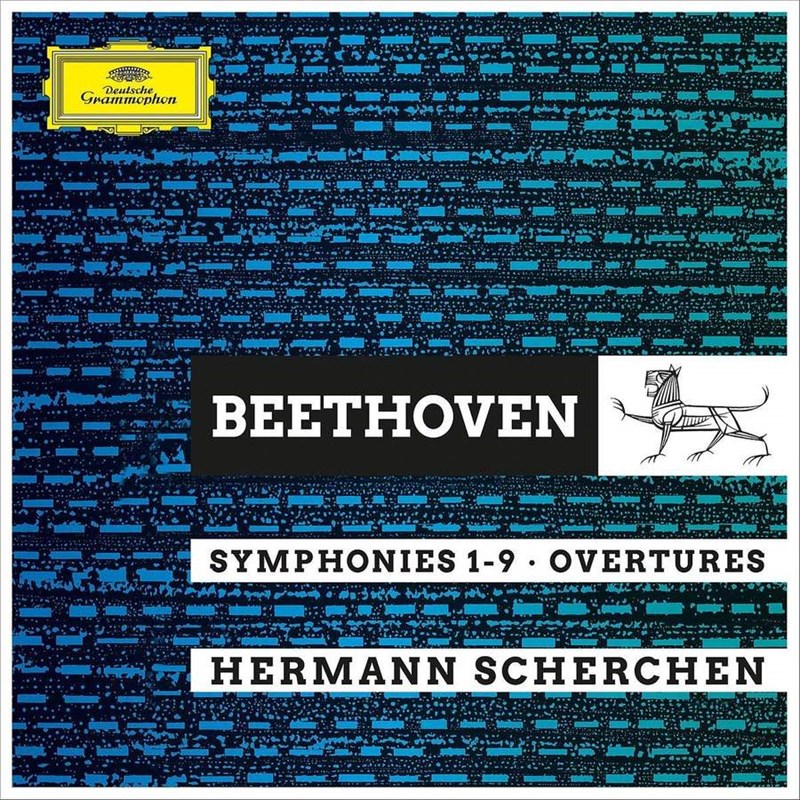
Royal Philharmonic Orchestra / Hermann Scherchen
DG
Hermann Scherchen’s Beethoven recordings for Westminster court both sides of the interpretative divide. DG’s well-transferred collection includes mono and stereo versions of the Eroica and Pastoral Symphonies, the later tapings pushing the pulse much in the way that Antonini and Gielen do. In fact, the timings for the Eroica’s first movement are near-identical except that the earlier version doesn’t include the first-movement repeat and the later one does. These are in the main big, bold, strongly stated performances, some with the Royal Philharmonic, others with the Vienna State Opera Orchestra (including both versions of Nos 3 and 6). No 2’s first movement is powerfully driven; and while No 5’s Scherzo lacks tension, its finale has a decidedly heroic feel to it. The set also includes another probing account of the Grosse Fuge (English Baroque Orchestra), fine versions of the overtures and Wellington’s Victory. Rob Cowan (Awards issue 2020)
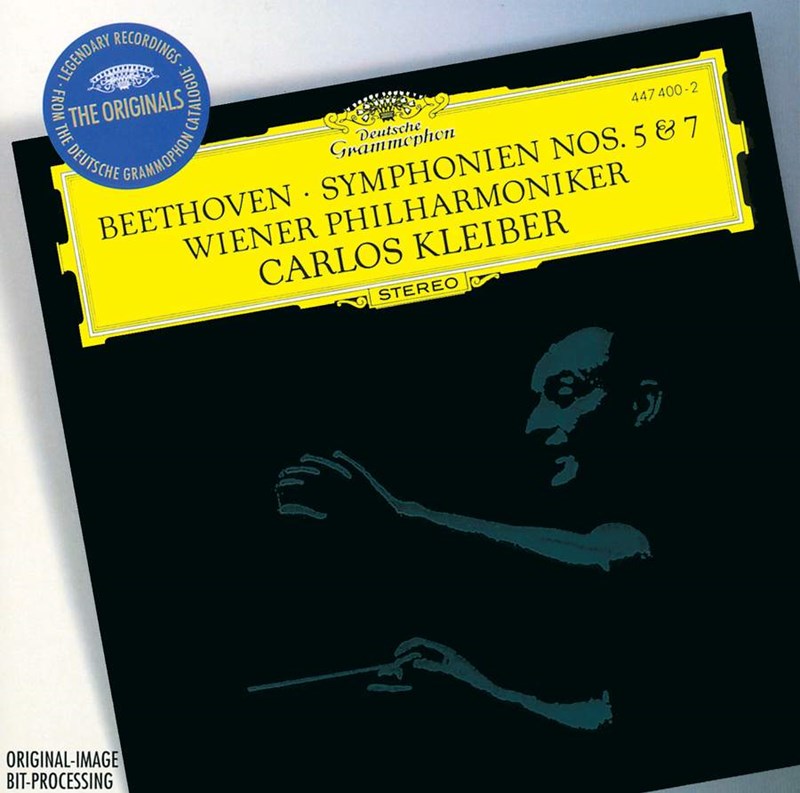
Vienna Philharmonic Orchestra / Carlos Kleiber
DG
Many years ago a member of the Vienna Philharmonic was asked how he rated certain celebrated conductors. He is said to have valued Bruno Walter at £500 a concert, Weingartner at £200, and a certain hapless Herr X at £50. Values have inflated since then, but using the old yardstick I would confidently guess that Carlos Kleiber is already in the £500 class, so memorably does the orchestra play for him. For this is one of the most glorious accounts of the Fifth Symphony I have ever had the pleasure of hearing; a version which is already vying in my affections with Klemperer's memorable Philharmonia recording of 1956 and Karajan's enduringly splendid 1963 Berlin version.
As a reading it is glorious on several counts. The orchestral playing is rich and glowing, catching in full measure the music's inborn splendour; yet it is a reading which is at all points superbly articulated and dynamically acute. The first movement is taken quickly. The tempo is as quick as Karajan's and almost as quick as Erich Kleiber's (Carlos's father) on his fine old Concertgebouw recording. Yet there is a tension and an elegance about the playing, matched with this masterly sweep of rhythm and tone, which gives one the clear feeling of the music being born anew. And this is surely the crucial factor, the real touchstone of the performance's greatness ... Richard Osborne (June 1975)
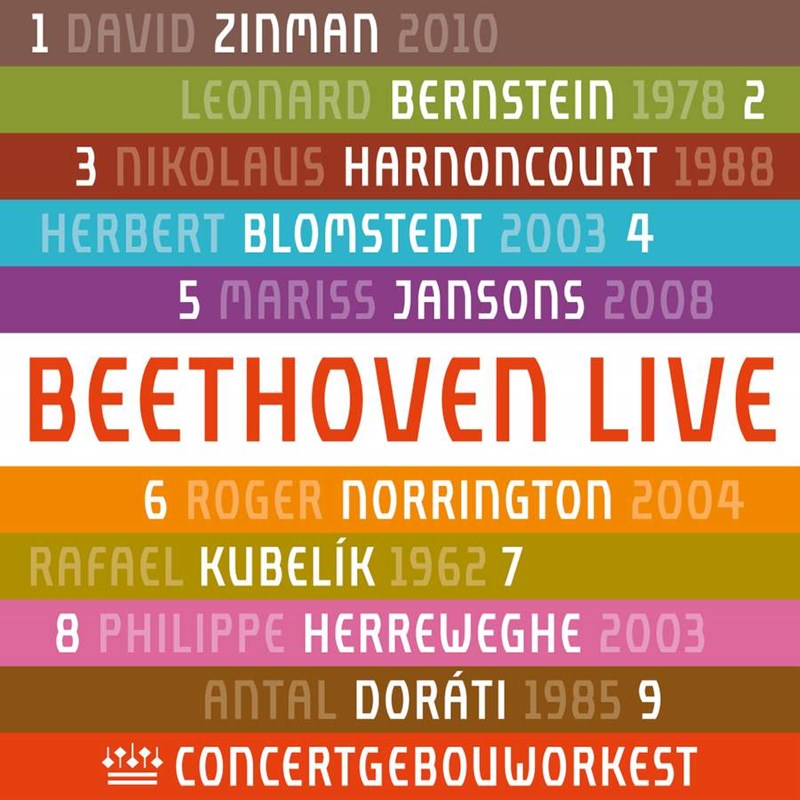
Royal Concertgebouw Orchestra / Mariss Jansons
RCO Live
In Leipzig and Munich respectively, Herbert Blomstedt and Mariss Jansons have given us recent Beethoven cycles of scrupulous refinement with old but calorie-counted orchestras. In Amsterdam, their interpretations of the Fourth and Fifth, while a touch slower, spring to life: Jansons finds unlikely kinship with Norrington and Harnoncourt (in charge of a bristling Eroica) in his individual pointing of the Fifth’s Andante con moto without a trace of militaristic swagger but instead breathing the same sweet air as the Pastoral. Peter Quantrill (to be published in March 2021)

Budapest Festival Orchestra / Iván Fischer
Channel Classics
Iván Fischer leads a polished and powerful account of Beethoven’s Fifth, although he makes a few odd interpretative choices along the way. The opening Allegro con brio is propulsive and grippingly tense. It’s also remarkably clear-textured given that the Budapest Festival Orchestra’s strings dig in with such gusto; the woodwind parts still shine through. And Fischer illuminates key structural facets such as the seismic harmonic change at the beginning of the development section (around 2'49"), which he registers with a stark shift in orchestral tone colour... Andrew Farach-Colton (December 2019)
Read the full review in the Reviews Database
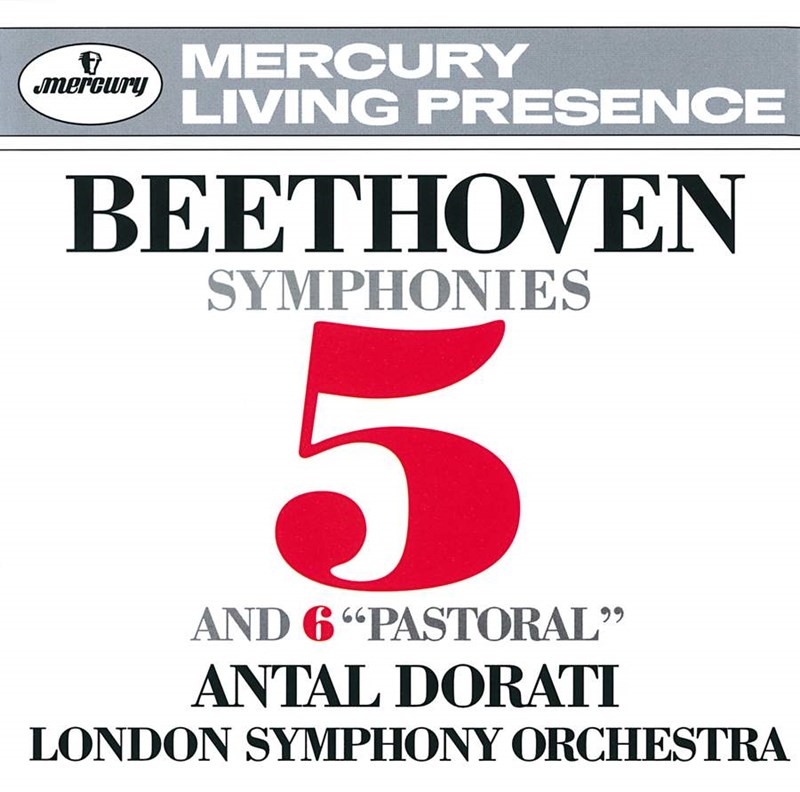
London Symphony Orchestra / Antal Dorati
Mercury Living Presence
With Beethoven’s Fifth, I’m constantly drawn back to the Mercury version by the LSO under Antal Dorati, recorded in 1962. Why? Because this is a performance without frills or affectations, as muscular and rhythmically assertive as you’ll find anywhere, with gutsy double basses in the Scherzo that in my experience have few, if any, equals on disc (‘Living Presence’ sound helps, of course). Dorati gives you a Beethoven Fifth that’s both direct and uplifting, expressive too – and with integrity to spare. Whenever I hear it (and I’ve heard it many times), it’s as if the ink of Beethoven’s score is still wet on the page. Rob Cowan (Beethoven: Not The Usual Suspects, April 2020)
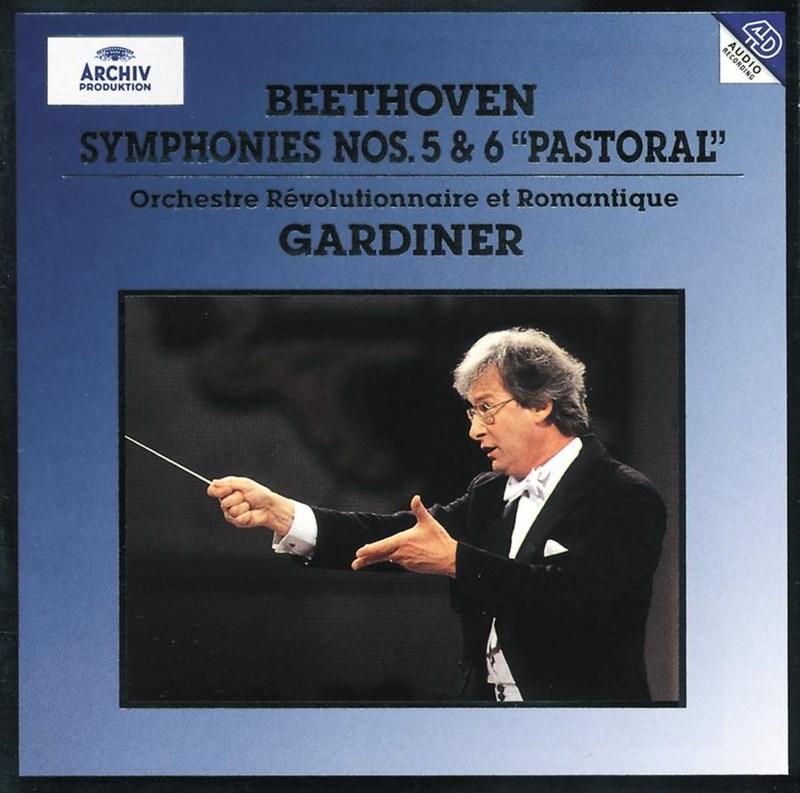
Orchestre Révolutionnaire et Romantique / John Eliot Gardiner
Archiv
A live performance of the Fifth Symphony — a performance that defies the moderating influence of many of Beethoven's written tempo markings and even occasionally upgrades what are already fairly urgent metronome markings — burns more or less consistently at white heat. It is a tour de force. Richard Osborne (November 1994)
Read the full review in the Reviews Database
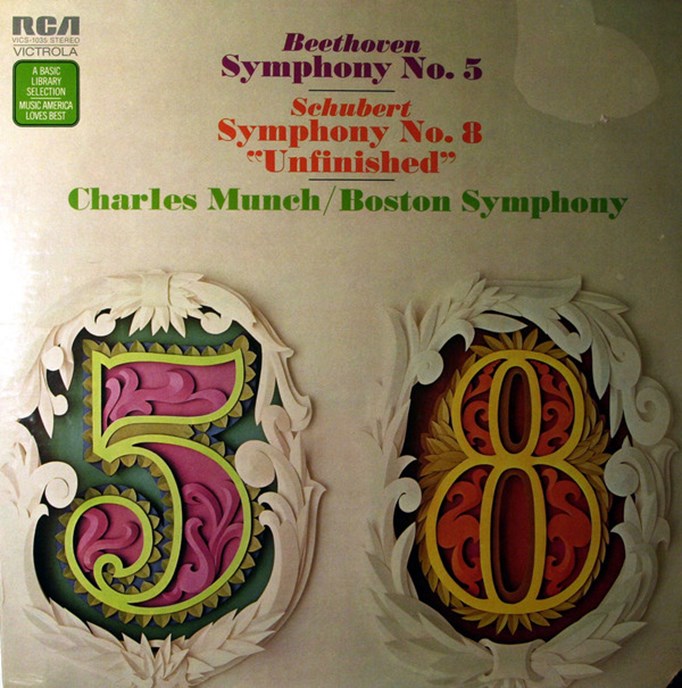
Boston Symphony Orchestra / Charles Munch
RCA
The Beethoven Fifth is a remarkable piece of record engineering. It runs for about 35 minutes on a single side; it is tremendously loud, and it gets louder and louder towards the end, yet holds the full Boston power without any detectable distortion. Munch gives an extraordinarily literal performance, playing the score just as it is marked, without making the slightest attempt to search for expressive connotations. I don't mean simply that there is, for example, no trace of yielding for the second subject (every other conductor I have heard 'yields' to some extent, Toscanini not excepted): but, as in all Beethoven compositions, there are passages which when inexpressively played sound like exercises, and they sound like exercises here. The fascination lies in the orchestral execution – and it is fascinating indeed ... I was very much gripped by this unusual performance, and I think most people will be – but do not want to hear it very often! Andrew Porter (February 1957)

Berlin Philharmonic Orchestra / Herbert von Karajan
DG
Numerous conductors from Weingartner onwards had recorded all nine symphonies, yet this was the first time in the history of the gramophone that a cycle had been recorded and marketed as an organically conceived entity. Walter Legge, who was Karajan’s close collaborator during his years with EMI, predicted a ‘colossal financial catastrophe’. In the event, it was anything but, such was the prestige of the project and the exceptional quality of everything about it: the music-making, the engineering and DG’s famously silent vinyl pressings. The cycle sold over a million copies within its first decade, 10 times the original break-even estimate. Richard Osborne (Preserving Beethoven's Legacy, January 2020)
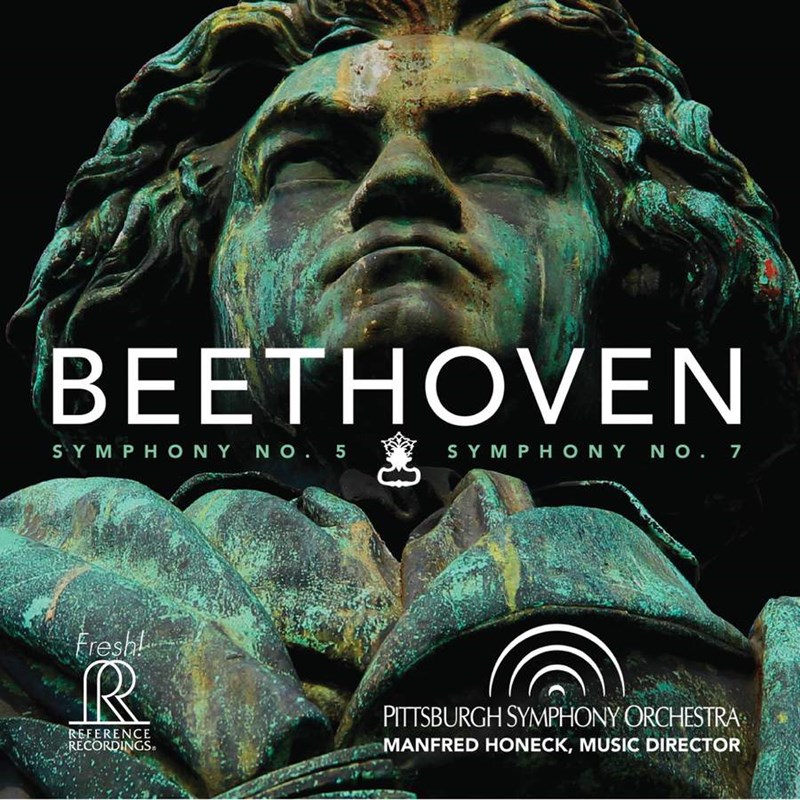
Pittsburgh Symphony Orchestra / Manfred Honeck
Reference Recordings
Honeck has a wonderful ear for detail, be it quietly thematic or utterly bizarre, as in the piccolo’s crackerjack contributions to the finale of the Fifth, whose final chord nonetheless manages to offer an inch-perfect balance between piccolo and drum. (The timpani detailing is a revelation throughout.) Like Carlos Kleiber before him, Honeck divides the fiddles antiphonally, a sine qua non in the Seventh but a great joy in the Fifth, where this former member of the Vienna Philharmonic’s second violin section conjures forth all manner of telling effects, none more beautiful than the exquisitely spun second violin counterpoint seven bars before fig C (3'49") in the slow movement. Not even Carlos Kleiber manages that. Kleiber’s readings are more classical than Honeck’s: less histrionic, more dramatic. But that’s a purist’s view. Honeck’s performances deserve to be heard. Richard Osborne (December 2015)
Never miss an issue of the world's leading classical music magazine – subscribe to Gramophone today





